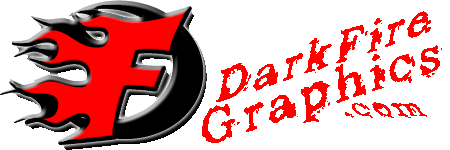
Back
| TableTop Reviews with Zap! |
Jeff Robicheau reviews different tabletop games, some less known then others. Consider these reviews to be an ideal way to learn some interesting little tidbits of information into some new game ideas to play with your group of DnD buddies or BESM pals. You never know, you may like some of these little known gems!
|
| Deadlands |
Hello, are you looking for a new adventure? Are you sick of the high fantasy world you're playing? Maybe you just completed a campaign and are looking for something to fill up the down time? Well, I am here to give you some ideas by presenting new systems and games (well, maybe, new to you) that will jumpstart your gaming group and your imagination. Today I am exploring the world of cold eyed gunslingers, wild Indian Shaman, mad scientists, and the horrific abominations that populate the Wild West in the game Deadlands. Produced by Pinnicle Entertainment and written by Shane L. Hensley, Deadlands blends elements of horror, western, and steampunk to produce an interesting and exciting game world unlike any other. The setting of the game takes place in the late 19th century U.S. with most of the action taking place in the Wild West, or as Deadlands calls it, the "weird" west. The history of the setting parallels the real history of the world until July, 1863, when a Sioux Shaman opens a portal into the Spirit Realm, causing all kinds of mayhem and releasing into the world a great evil known as The Reckoners. The Reckoners are malicious entities that feed off negative emotions, especially fear. The level of fear, as it rises in a population, allows the Reckoners to subtly change the environment. The sun doesn’t shine as bright, the trees twist to take on a menacing appearance, the rocks take on monstrous visages and abominations appear to cause fear and terror. The ultimate goal of the Reckoners is to create hell on earth, so they may enter the world itself. Earthquakes and other seismic upheavals have destroyed most of California, turning it into an area known as the "Great Maze." Miners discover here a strange mineral called "Ghost Rock" that burns hotter and longer than coal. With this discovery, and the Reckoners supporting technical designs, it advances the setting to a steampunk level. The release of the Reckoners had some other interesting side effects that play an important role in this game setting. For example Magic was found to be real, but, unlike other settings, it involves challenging "manitous," or spirits, to a test of will in order to perform spells. The Player Characters can take on many roles ranging from mundane to arcane. These include, gunslingers, lawmen, hucksters (magic users), shaman, blessed (priest or nun), and mad scientist! The goal is to attempt to understand and put a stop to the evil of the reckoners. Now that I have covered the "fluff" allow me to move on the game system and some of the unique aspects that set Deadlands apart from the other systems. Since we have already began talking about characters, we will begin with Character Creation. Instead of your typical dice and point system, this creation system also employs a standard deck of cards (with the Jokers included) to determine your basic stats. Different suites and numbers represent the different die type and amount that you use for that stat. Also, there is a system of skills, advantages, and disadvantages known as Edges and Hindrances to fill out the character. Of course, this game does use the known and loved polyhedral dice for gameplay... in addition to red, blue and white poker chips and the deck of cards mentioned above. The die resolution system for Deadlands uses target numbers, where a character rolls the dice in an attempt to meet or beat the target number for success. Rolling the highest number on the die is called "rolling an ace" which allows the player to roll again, and add the score to the original roll. Every 5 points above the target number gives the player a "raise" which is a little extra boost in action. Another unique aspect of this game is how initiative is determined. Rather than rolling, players draw cards from a community deck (the number of cards drawn is determined by a special die roll depending on character type/stats) and the GM calls out the order, determnined by card values, in which the players will take their turn. You might be wondering what the poker chips are for. These are called fate chips in game. At the beginning, players blindly draw a number of chips (which can be modified at GM discretion.) These chips can be used for in game bonuses, or turned in for extra XP at the end of the game. This system also promotes rewarding players for good roleplaying by allowing the GM to give out fate chips during game play. This is a really good thing for encouraging shy players to open up and get into their character to really roleplay well. All in all, Deadlands, with its mix of western, horror, and steampunk genres and its unique and rewarding gameplay has something for everyone. I feel this game is a great escape from the usual high fantasy, sword and sorcery games most people play. I definitely recommend this title to everyone. Besides, who wouldn't want to be a gun-slinging cowboy riding out on the wind swept plains of the weird west gunning down zombies and other horrible abominations with your trusty gatling pistol? That is some good ol' fashioned fun if you ask me! And remember, no matter what you play, have fun and never stop using your imagination.
Written By Jeff Robicheau. Edited by Tyler Clapp. All references, icons, and imagery are trademark to their appropriate owners, and author and editor take no credit for creation/ownership of these things, only the opinions stated in this article. |